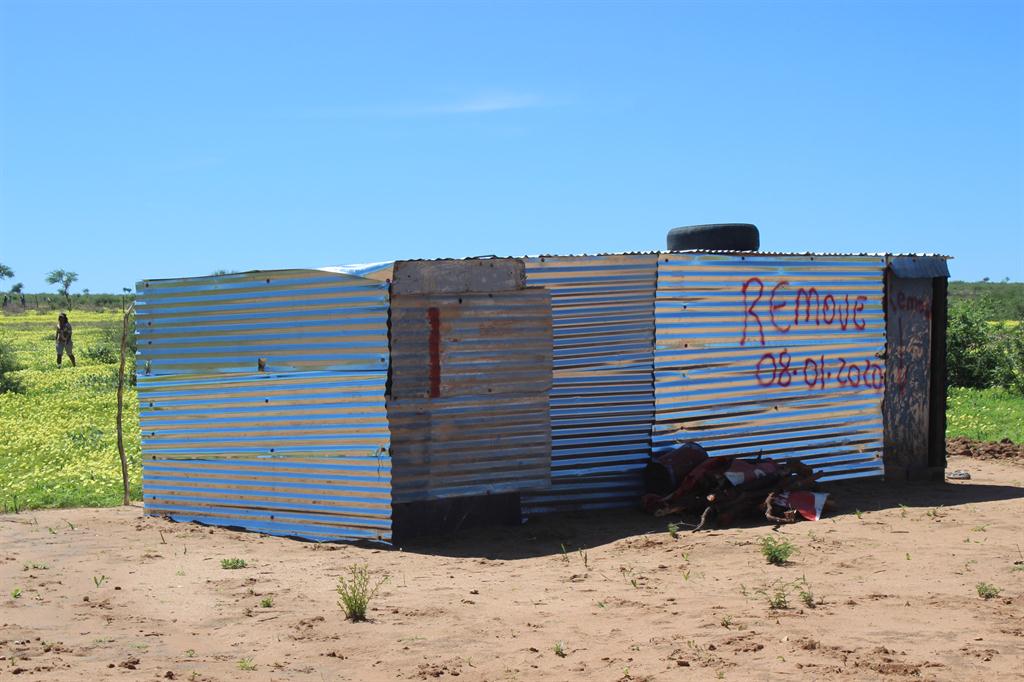Govt defends apartheid law
Affirmative Repositioning land activist Dimbulukeni Nauyoma is fighting the constitutionality of the controversial Squatters Proclamation of 1985, calling it brutal, shameful and draconian.
Marc Springer
WINDHOEK
Government says the controversial Squatters Proclamation of 1985 should remain in place in order to prevent land grabbing and to protect property rights.
The law, which was partially set aside by the Supreme Court in 2013, has come under renewed scrutiny.
This time around, Affirmative Repositioning land activist Dimbulukeni Nauyoma is fighting the constitutionality of the regulation, calling it brutal, shameful and draconian. Last year, he dragged government and the Attorney General to court to get the proclamation repealed.
Nauyoma argued in court papers that the law is aimed at marginalising poor people who cannot afford to buy serviced erven and who are thus forced to occupy land illegally.
In his answering papers, however, minister of urban and rural development Erastus Uutoni said the proclamation helps to prevent illegal occupation of land and to protect property rights.
Uutoni also warned that there is a danger of social unrest between property owners and landless people should the “invasion” of land without lawful cause or consent of the owner be tolerated.
“The proclamation served a legitimate governmental objective of protecting property rights and preventing illegal land occupations,” Uutoni said.
Arbitrary and unconstitutional
Nauyoma however argued that some provisions of the proclamation – which are still in force – prohibit black persons from working in urban areas where they have no accommodation.
Additionally, he lamented that the proclamation does not take into account how long a particular settler has resided on a piece of land, whether or not they have any children to provide for or any alternative accommodation available elsewhere.
As such, Nauyoma charged the impugned law did not allow for any selective application, resulting in it being arbitrary and unconstitutional.
“The proclamation falls to be set aside in that it violates the dignity of human beings, infringes on the principle of equality, marginalises poor people and at least theoretically infringes on the freedom of movement of black Namibians,” he said.
He claimed the proclamation was one of the key apartheid policies that were used to prevent black people from acquiring land and settling in municipal areas.
Housing backlog
“If it is accepted that Namibia currently has a housing backlog of more than 300 000 housing units, then it should also be accepted that surely persons will find other means to access land by way of erecting structures on vacant land,” Nauyoma stated in his affidavit.
As a result, he continued, illegal settlers were not maliciously disregarding valid laws, but acting out of necessity, and should not be criminalised for it.
In opposition to the application, Uutoni argued that only Parliament can make or repeal laws and grant the legislative relief sought by plaintiff.
He further accused Nauyoma of inviting the court to interfere in functions reserved for the legislature.
“Nauyoma’s application should be dismissed because he failed to prove that the legislation was ever used specifically against certain groups to perpetuate racial policies of the previous regime or discriminate against people according to their social status,” the minister said.
Uutoni also pointed out that the removal of illegal settlers is principally impossible without a valid eviction order and necessitates the relocation of affected parties.
As such, he said, it could not be argued that the proclamation allowed for an arbitrary displacement of persons who erected structures on municipal ground without the required consent.
Back in time
The Supreme Court had in the past declared as unconstitutional those sections of the proclamation which allowed for the forceful removal of illegal settlers from municipal land without obtaining an eviction order issued by a court of law.
The provisions were struck by the country’s apex court, which cited that “the destruction of a dwelling and removal of its contents had severe implications for those affected, even if the material value of the home was modest”.
As a result, the court found it to be impermissible if illegally erected houses were demolished without prior notice or giving the affected parties a chance to be heard.
WINDHOEK
Government says the controversial Squatters Proclamation of 1985 should remain in place in order to prevent land grabbing and to protect property rights.
The law, which was partially set aside by the Supreme Court in 2013, has come under renewed scrutiny.
This time around, Affirmative Repositioning land activist Dimbulukeni Nauyoma is fighting the constitutionality of the regulation, calling it brutal, shameful and draconian. Last year, he dragged government and the Attorney General to court to get the proclamation repealed.
Nauyoma argued in court papers that the law is aimed at marginalising poor people who cannot afford to buy serviced erven and who are thus forced to occupy land illegally.
In his answering papers, however, minister of urban and rural development Erastus Uutoni said the proclamation helps to prevent illegal occupation of land and to protect property rights.
Uutoni also warned that there is a danger of social unrest between property owners and landless people should the “invasion” of land without lawful cause or consent of the owner be tolerated.
“The proclamation served a legitimate governmental objective of protecting property rights and preventing illegal land occupations,” Uutoni said.
Arbitrary and unconstitutional
Nauyoma however argued that some provisions of the proclamation – which are still in force – prohibit black persons from working in urban areas where they have no accommodation.
Additionally, he lamented that the proclamation does not take into account how long a particular settler has resided on a piece of land, whether or not they have any children to provide for or any alternative accommodation available elsewhere.
As such, Nauyoma charged the impugned law did not allow for any selective application, resulting in it being arbitrary and unconstitutional.
“The proclamation falls to be set aside in that it violates the dignity of human beings, infringes on the principle of equality, marginalises poor people and at least theoretically infringes on the freedom of movement of black Namibians,” he said.
He claimed the proclamation was one of the key apartheid policies that were used to prevent black people from acquiring land and settling in municipal areas.
Housing backlog
“If it is accepted that Namibia currently has a housing backlog of more than 300 000 housing units, then it should also be accepted that surely persons will find other means to access land by way of erecting structures on vacant land,” Nauyoma stated in his affidavit.
As a result, he continued, illegal settlers were not maliciously disregarding valid laws, but acting out of necessity, and should not be criminalised for it.
In opposition to the application, Uutoni argued that only Parliament can make or repeal laws and grant the legislative relief sought by plaintiff.
He further accused Nauyoma of inviting the court to interfere in functions reserved for the legislature.
“Nauyoma’s application should be dismissed because he failed to prove that the legislation was ever used specifically against certain groups to perpetuate racial policies of the previous regime or discriminate against people according to their social status,” the minister said.
Uutoni also pointed out that the removal of illegal settlers is principally impossible without a valid eviction order and necessitates the relocation of affected parties.
As such, he said, it could not be argued that the proclamation allowed for an arbitrary displacement of persons who erected structures on municipal ground without the required consent.
Back in time
The Supreme Court had in the past declared as unconstitutional those sections of the proclamation which allowed for the forceful removal of illegal settlers from municipal land without obtaining an eviction order issued by a court of law.
The provisions were struck by the country’s apex court, which cited that “the destruction of a dwelling and removal of its contents had severe implications for those affected, even if the material value of the home was modest”.
As a result, the court found it to be impermissible if illegally erected houses were demolished without prior notice or giving the affected parties a chance to be heard.






Comments
Namibian Sun
No comments have been left on this article